Attack on Titan Ending Explained: What Really Happened and Why Fans Are Divided
Discover the shocking truth behind Attack on Titan's ending! Explore the final chapters, key differences between the manga and anime, and why fans are so divided. Unravel the hidden themes and deeper meaning of Hajime Isayama’s controversial conclusion. Read now!
ATTACK ON TITAN
Anime Fever
2/14/20258 min read
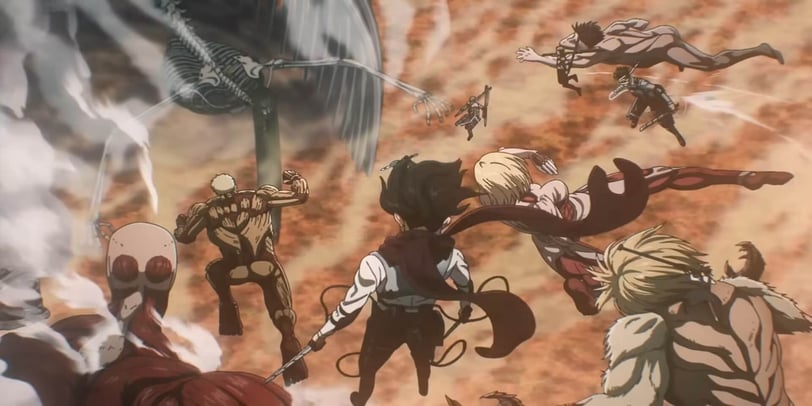

Spoilers Alert
Attack on Titan is one of the most influential anime and manga series of the past decade. Created by Hajime Isayama, the story captivated audiences with its intense action, deep themes, and complex characters. Since its debut in 2009 (manga) and 2013 (anime), it has gained a massive global following, inspiring discussions, theories, and debates. The series stood out for its unpredictable plot twists, morally gray characters, and philosophical exploration of freedom, war, and survival.
As Attack on Titan approached its final chapters, expectations were sky-high. Fans eagerly anticipated how Eren Yeager's journey would end and what the fate of humanity inside the walls would be. Many hoped for a satisfying conclusion that would tie together the series' many mysteries while delivering a powerful emotional impact. However, when the manga’s ending was released in April 2021, it sparked intense debate. Some praised it as a thought-provoking conclusion, while others felt it was rushed or unsatisfying.
With the anime adaptation's final episodes, discussions reignited. Changes made to the anime’s ending led to new interpretations and reactions. Why did the finale divide fans so much? And what does it really mean for the story? Let’s break it all down.
The Final Chapters: How Attack on Titan Ends
As Attack on Titan reached its climax, the final battle against Eren Yeager and his unstoppable Rumbling unfolded. In chapters 137-139 of the manga and the anime’s final episodes, the fate of the world was decided through a mix of brutal combat, emotional sacrifices, and philosophical revelations.
Eren’s Fate and His Ultimate Plan
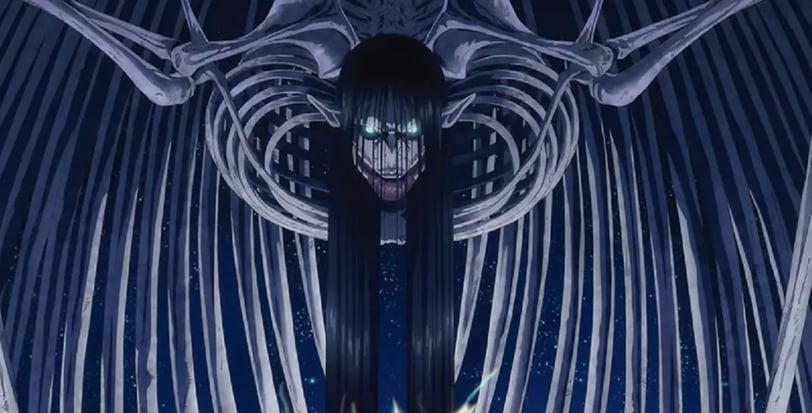

Eren, having gained the Founding Titan’s power, unleashed the Rumbling, sending countless Colossal Titans to trample the world outside Paradis Island. His stated goal was to destroy most of humanity, ensuring that the people of Paradis would never face persecution again. However, it was later revealed that Eren knew he would be stopped all along.
Through his ability to see the future, Eren accepted his own death as inevitable, believing it was the only way to create a world where his friends could live freely. By forcing his former allies to become the heroes who stopped him, Eren ensured that the cycle of revenge against Eldians might finally end.
Armin, Mikasa, and the Final Battle
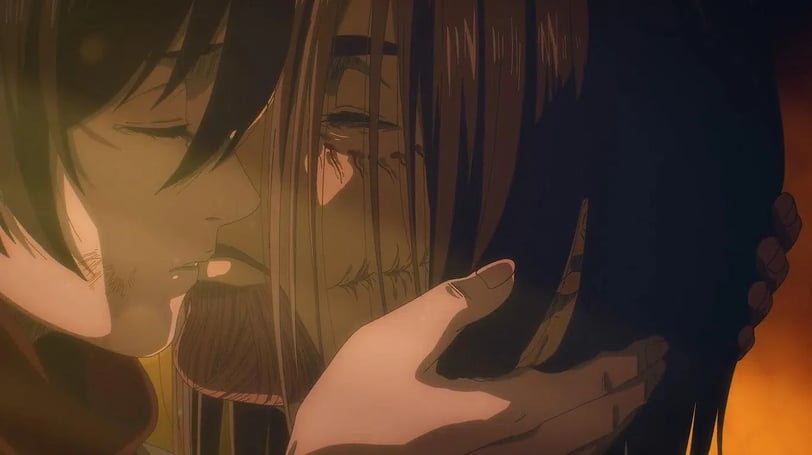

Armin, now the inheritor of the Colossal Titan, played a critical role in strategizing against Eren. Alongside Mikasa, Levi, Reiner, Jean, Connie, and Pieck, he confronted Eren’s massive Founding Titan form, a grotesque fusion of multiple Titans and Ymir’s power.
In the end, it was Mikasa who dealt the final blow. Guided by memories of her bond with Eren, she decapitated him inside the Founding Titan’s mouth, delivering a tearful farewell with a final kiss. This moment was both a tragic love story and a symbol of breaking free from destiny—Mikasa, who had always followed Eren, was the one to end his life.
Changes in the World After Eren’s Defeat
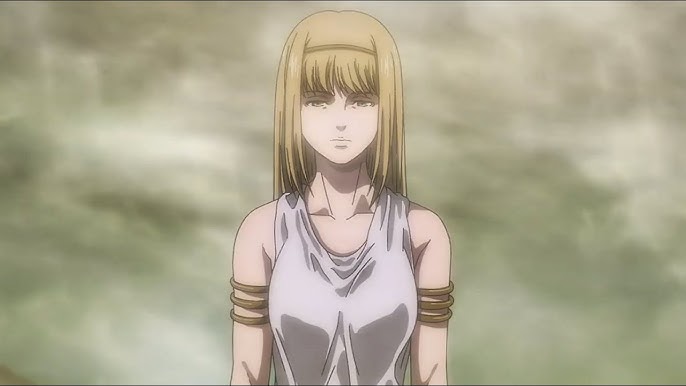

With Eren’s death, the Rumbling stopped, and the Titan curse was lifted. Every remaining Titan shifter and mindless Titan returned to human form, including Annie, Falco, and Gabi. Ymir, the first Titan and the true source of the Titans’ power, was finally freed from her eternal suffering, ending the Titans’ existence once and for all.
Despite the end of the Titans, peace was not guaranteed. Paradis and the rest of the world remained in conflict, with tensions still high between Eldians and other nations. Armin, now a leader and diplomat, hoped to forge a path toward peace. Meanwhile, Mikasa mourned Eren, choosing to live a quiet life away from war, carrying his memory with her.
The ending of Attack on Titan was bittersweet, leaving fans with deep questions about freedom, sacrifice, and the cost of change.
Changes in the Anime Ending: How It Differs from the Manga
The anime adaptation of Attack on Titan’s ending remained largely faithful to the manga, but it introduced some notable alterations that changed how fans perceived the story’s conclusion. The most significant adjustments came in Attack on Titan Final Season: The Final Chapters, particularly in the form of additional scenes and slight dialogue modifications.
The Additional Scene with Eren and Armin
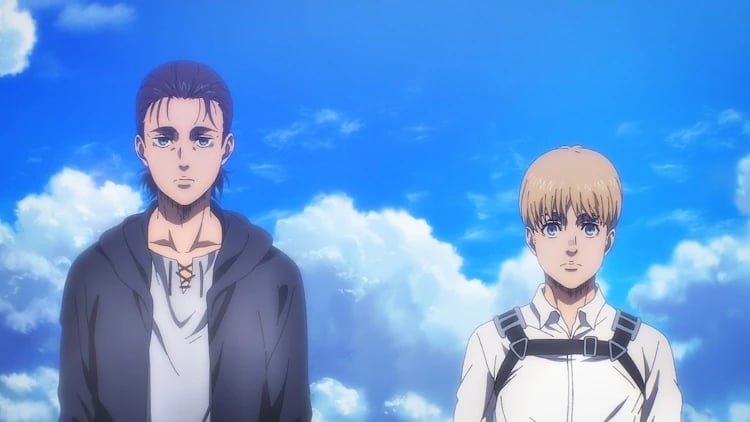

One of the most important changes in the anime’s ending was an extended conversation between Eren and Armin inside the Paths. In the manga, Eren’s final words to Armin were brief and vague, leaving some aspects of his motivations and emotions open to interpretation. However, in the anime, their conversation was much longer and more emotional, giving more insight into Eren’s guilt, regrets, and his love for his friends.
In this added sequence, Eren openly admits his contradictory feelings—his desire to destroy the world yet still cherish his friends, and his jealousy of Armin for being someone Mikasa could have chosen instead of him. This scene made Eren feel more human and vulnerable, changing how audiences perceived his actions.
Small Dialogue and Visual Changes
Aside from the extended Eren-Armin scene, the anime tweaked certain dialogues and enhanced some key visuals, subtly altering the interpretation of the finale.
The Rumbling’s destruction was shown in even more gruesome detail, emphasizing the horrors of Eren’s actions.
Mikasa’s farewell to Eren had a longer, more intimate shot, reinforcing the emotional impact.
The final panel of the manga, showing a boy approaching Eren’s grave, was adapted with a different visual tone, leaving room for new interpretations about the future of Paradis.
These small yet significant changes reshaped the emotional weight of Attack on Titan’s conclusion, leading to new debates and interpretations among fans.
The Fan Reactions: Why the Ending is So Divisive
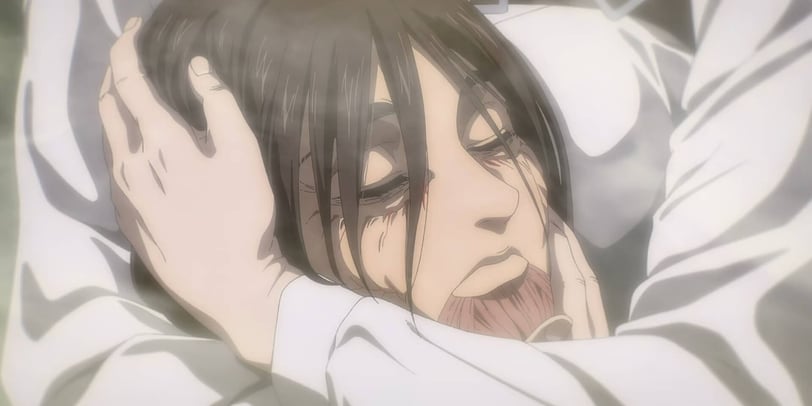

The ending of Attack on Titan sparked intense debate within the anime and manga community. While some fans appreciated its symbolism and character resolutions, others criticized it for wasting potential and contradicting earlier themes. The division in opinions only grew stronger when the anime adaptation made slight changes, leading to discussions about whether these adjustments improved or worsened the finale.
Mixed Reception of the Manga’s Ending
When the final chapter (Chapter 139) was released in April 2021, it received polarizing reactions. Many readers felt that Eren’s true motivations and the final resolution were rushed, leaving unanswered questions about the future of Paradis and the fate of the world. Some fans expected a darker, more conclusive ending, while others felt the story’s themes of freedom and fate were ultimately undermined.
Despite these criticisms, others praised the emotional weight of the final chapter, particularly Mikasa’s role in stopping Eren and the idea that breaking free from cycles of hatred is a gradual process rather than an instant solution.
Anime vs. Manga: How Reactions Differed
The anime adaptation, Attack on Titan Final Season: The Final Chapters, made some notable changes that slightly softened the backlash from manga readers. The extended Eren-Armin conversation, for example, provided more depth to Eren’s emotions and his regrets, which helped some fans understand his actions better. Additionally, the improved pacing and expanded visual storytelling made certain moments feel more impactful and cinematic.
However, while some viewers felt the anime fixed flaws from the manga, others argued that the core problems of the ending remained—particularly regarding Paradis' uncertain future and the abrupt way the Titan conflict was resolved.
Symbolism and Interpretation
One of the biggest points of debate among fans is the symbolic meaning of the ending. Some believe it represents the inevitability of human conflict, showing that even after Eren’s death, war will continue. Others argue that it was about hope and progress, suggesting that despite struggles, change is possible.
Regardless of differing opinions, Attack on Titan remains a series that provoked deep discussions about morality, freedom, and destiny, ensuring its legacy in anime history.
What the Ending Means: Themes and Symbolism
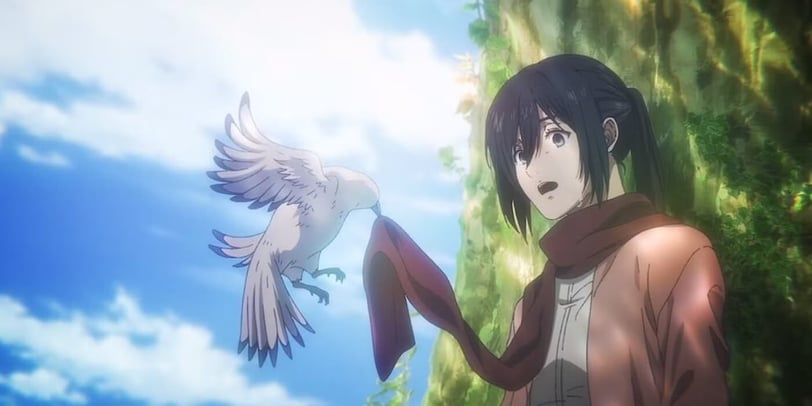

The finale of Attack on Titan carries deep thematic significance, reflecting on the cycle of war, the pursuit of freedom, and the weight of fate. Hajime Isayama crafted an ending that left room for interpretation, making it one of the most debated conclusions in modern anime and manga.
The Cycle of War and Human Nature
One of the most prominent themes in the ending is the inescapable nature of war and human conflict. Even after Eren’s death and the destruction of the Titans, violence does not disappear—Paradis and the outside world remain in a tense political struggle. This suggests that true peace is not achieved overnight but requires continuous effort.
The story reinforces the idea that history tends to repeat itself, and while Eren sought to break free from this pattern, his methods ultimately contributed to its continuation. His extreme actions forced the world to unite against a common threat, but once that threat was gone, old divisions remained.
Mikasa’s Choice and the Power of Love
Mikasa’s decision to kill Eren was not just a tragic act but also a symbol of breaking free from fate. Throughout the series, she was portrayed as someone who always followed Eren, but in the end, she chose to stop him, proving she was more than just his protector.
Her final act of love—kissing Eren’s severed head—was a heartbreaking yet powerful moment. It showed that love and loss coexist and that true love sometimes means making painful decisions for the greater good.
Armin’s Decision: A Hopeful Future?
Armin’s role as a diplomat and peacemaker reflects an alternative to Eren’s path. Instead of seeking dominance through destruction, Armin chooses to pursue dialogue and understanding. His belief in peace offers a contrast to Eren’s nihilistic approach, reinforcing the idea that humanity always has a choice between war and cooperation.
The Post-Eren World and Isayama’s Message
The world after Eren remains uncertain, with Paradis preparing for possible future conflicts. This ambiguity reflects Isayama’s realistic perspective on history, showing that while one war may end, others can follow.
Ultimately, Attack on Titan’s ending conveys a thought-provoking message: Freedom is fleeting, war is cyclical, but individuals can still choose to break patterns and create a better future.
Conclusion
The ending of Attack on Titan serves as a powerful and thought-provoking conclusion to one of the most influential anime and manga series of all time. It not only resolves the story’s central conflicts but also reinforces its core themes of freedom, war, and destiny. The final chapters provide closure to major character arcs, particularly Eren, Mikasa, and Armin, while also leaving room for interpretation regarding the future of Paradis and the world beyond.
However, the conclusion has remained divisive among fans. While some appreciate its philosophical depth and emotional weight, others criticize it for being too tragic, ambiguous, or inconsistent with certain character motivations. The added scenes in the anime further complicated opinions, as they offered a slightly different perspective on Eren’s thoughts and regrets.
Despite the mixed reactions, the finale undeniably cements Attack on Titan’s legacy as a story that challenges conventional narratives about war, morality, and human nature. Hajime Isayama crafted a world where there are no true heroes or villains—only individuals shaped by their circumstances and choices. The way the series ends reinforces its ultimate message: history repeats itself, but the choices people make can determine whether or not they break free from the cycle.
In the grand scope of Attack on Titan, the ending fits as a natural, albeit painful, resolution to the story’s themes. Whether loved or debated, it has ensured that Attack on Titan will continue to be discussed for years to come—a hallmark of any truly impactful piece of storytelling.
Read Also: Eren Yeager: Hero or Villain? The Truth Behind His Evolution
Read Also: Attack on Titan’s Final Season: Every Major Change from the Manga Explained
Read Also: The 9 Best and Worst Deaths in Attack on Titan (Ranked by Impact and Emotion)
